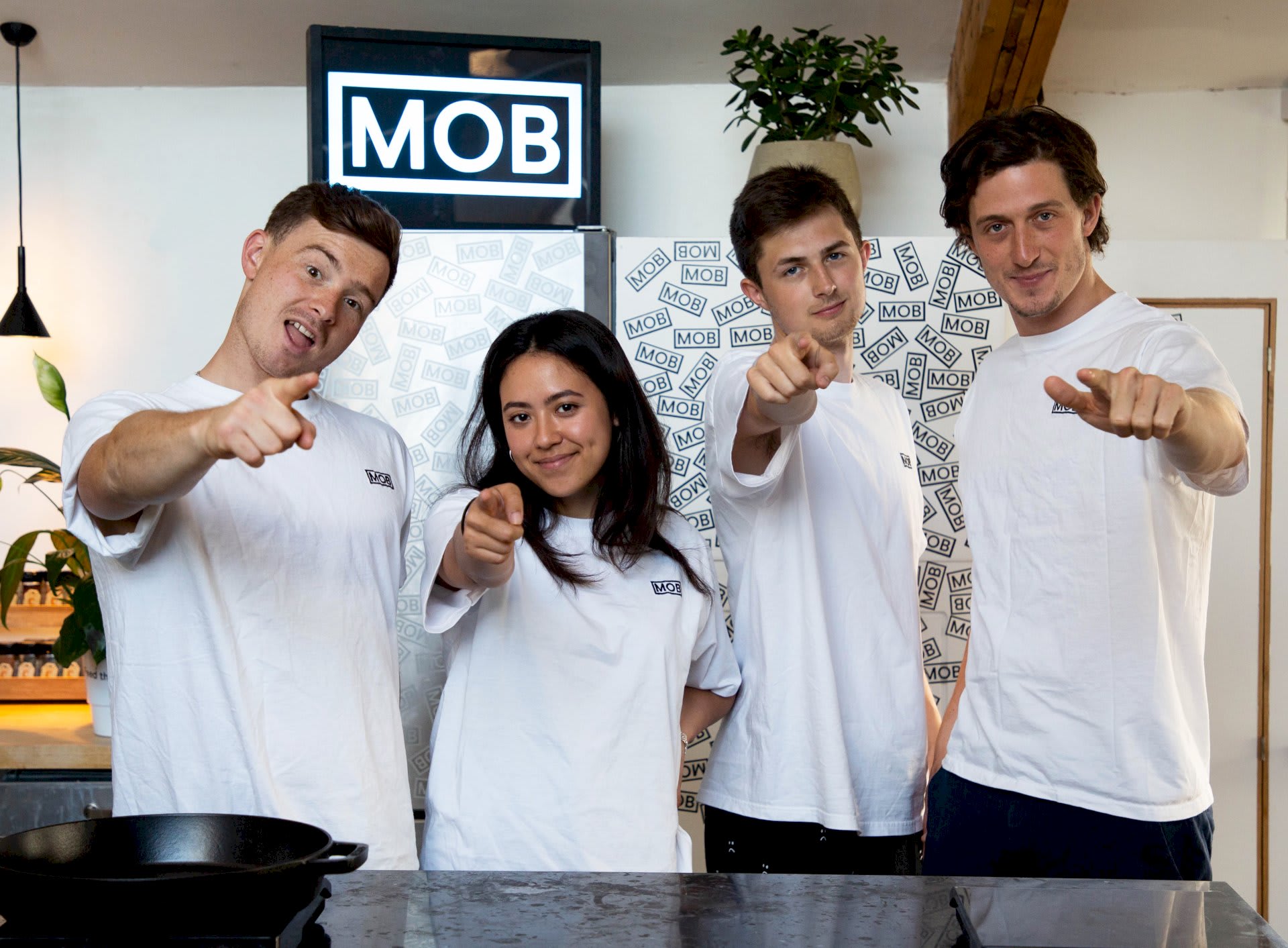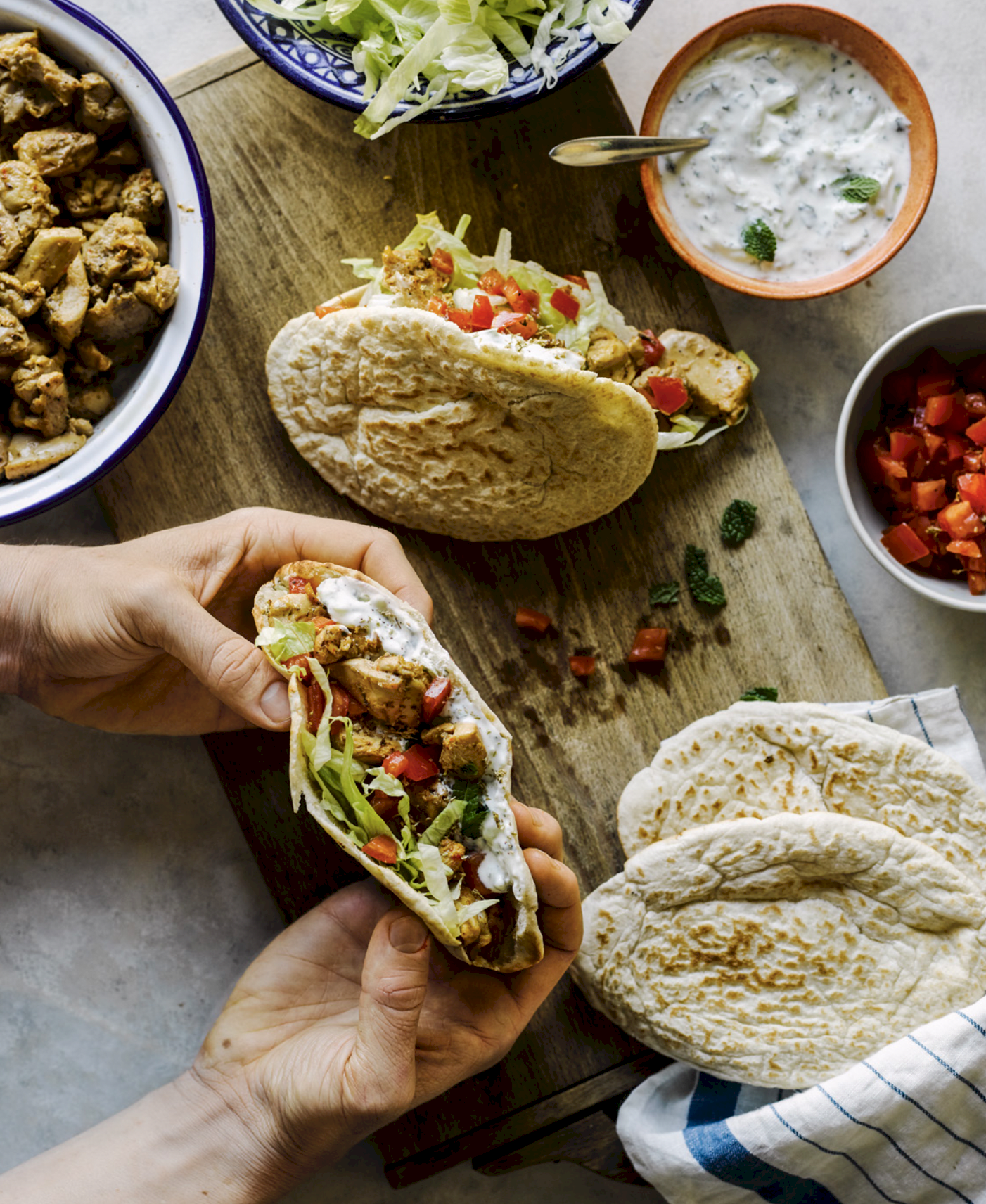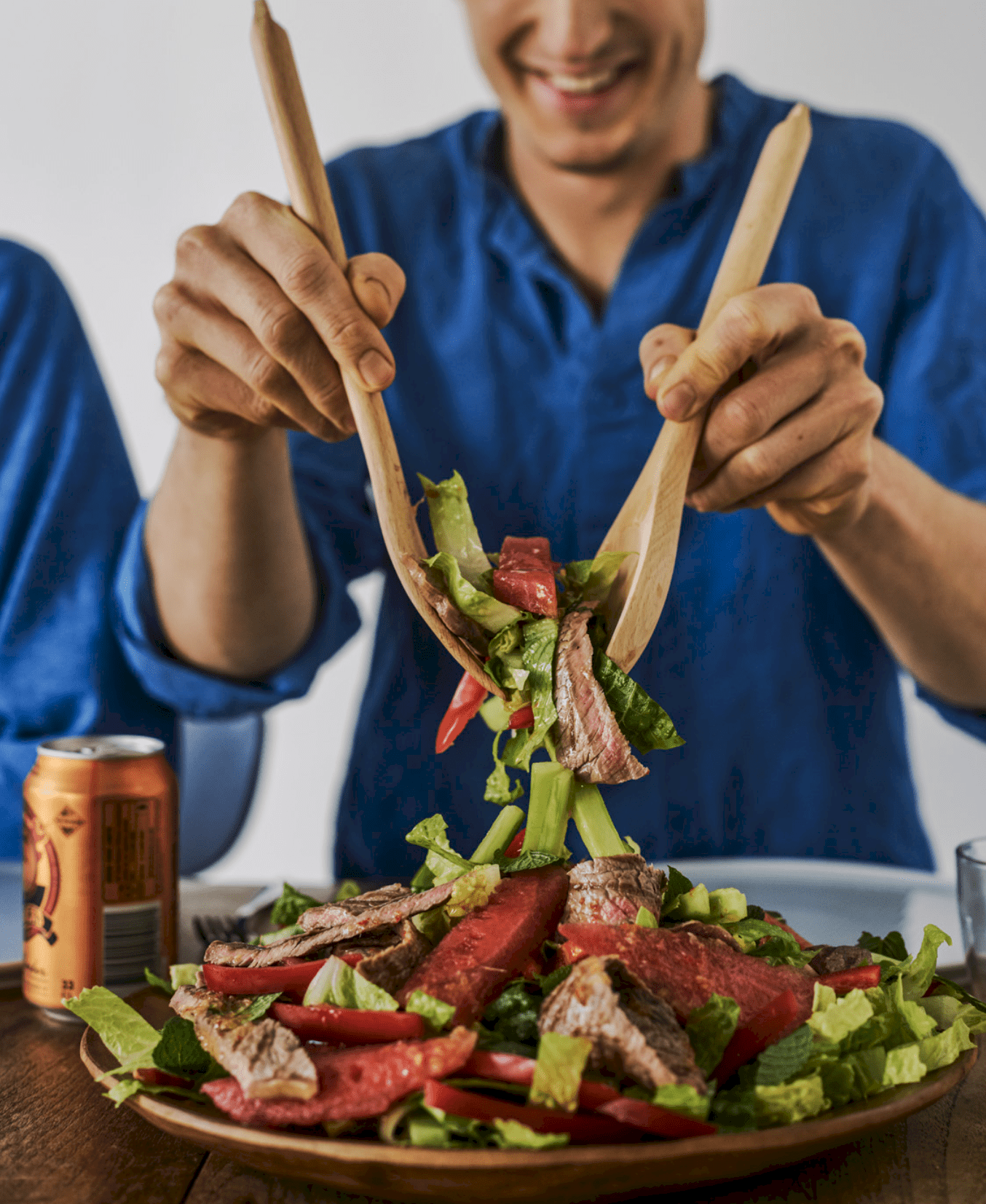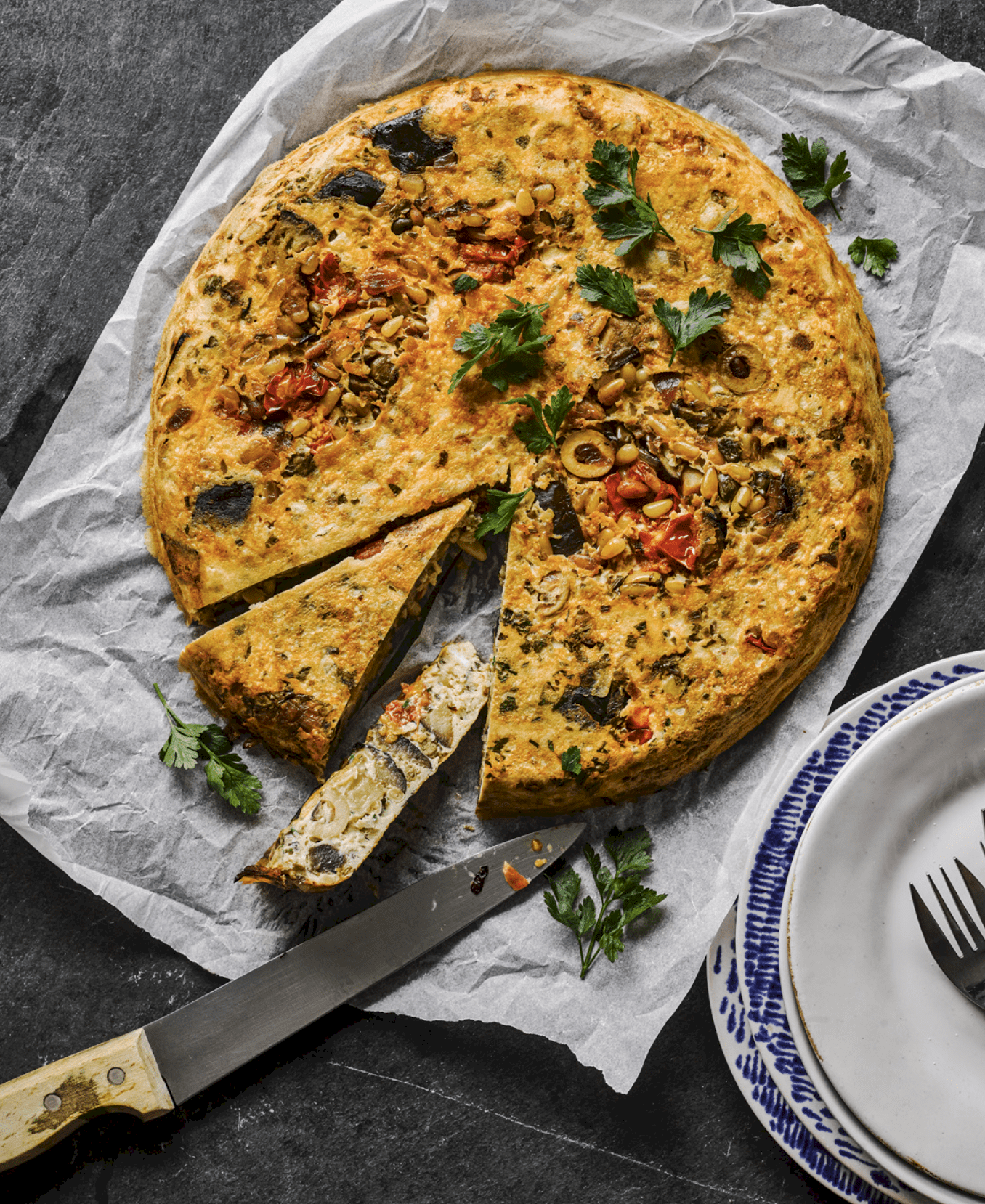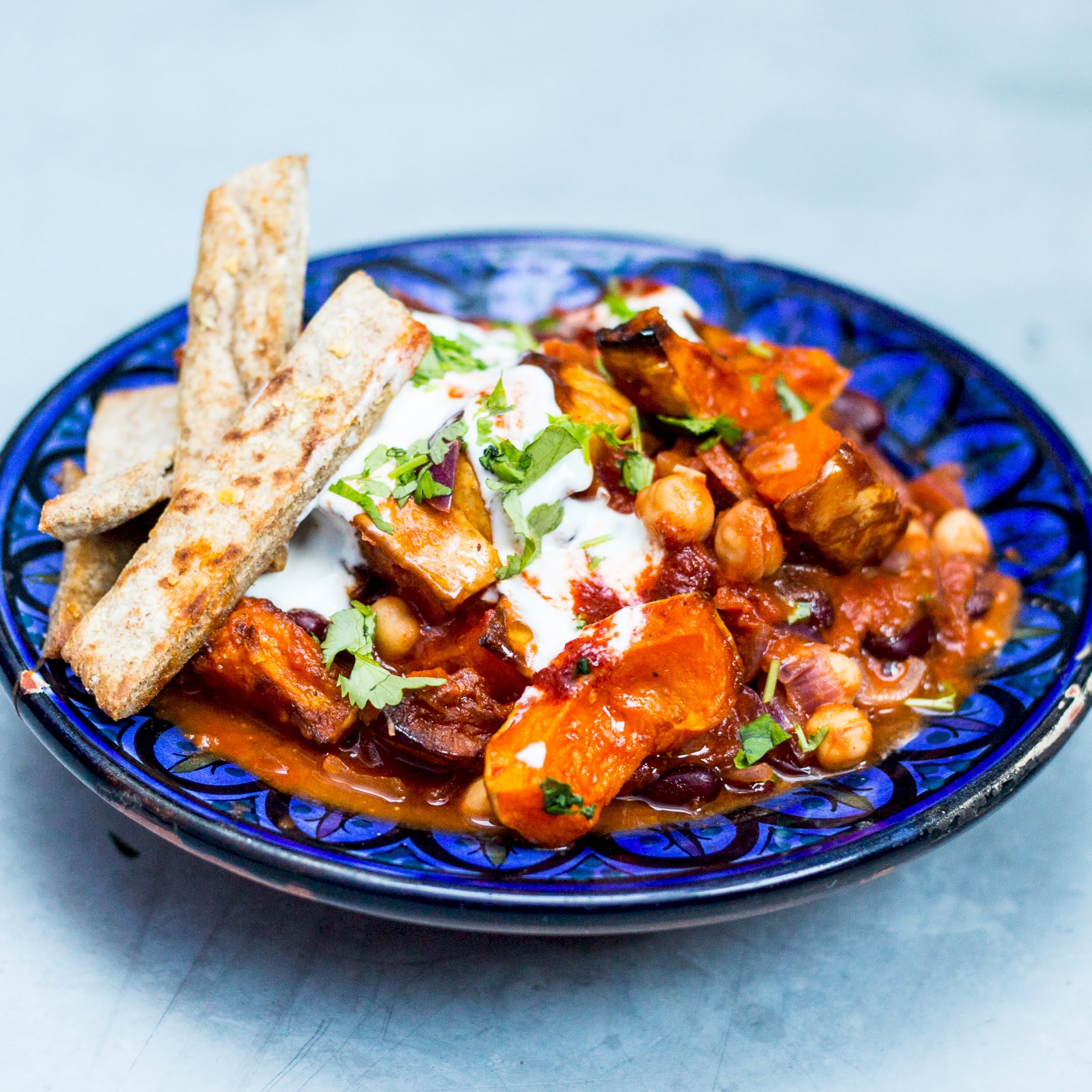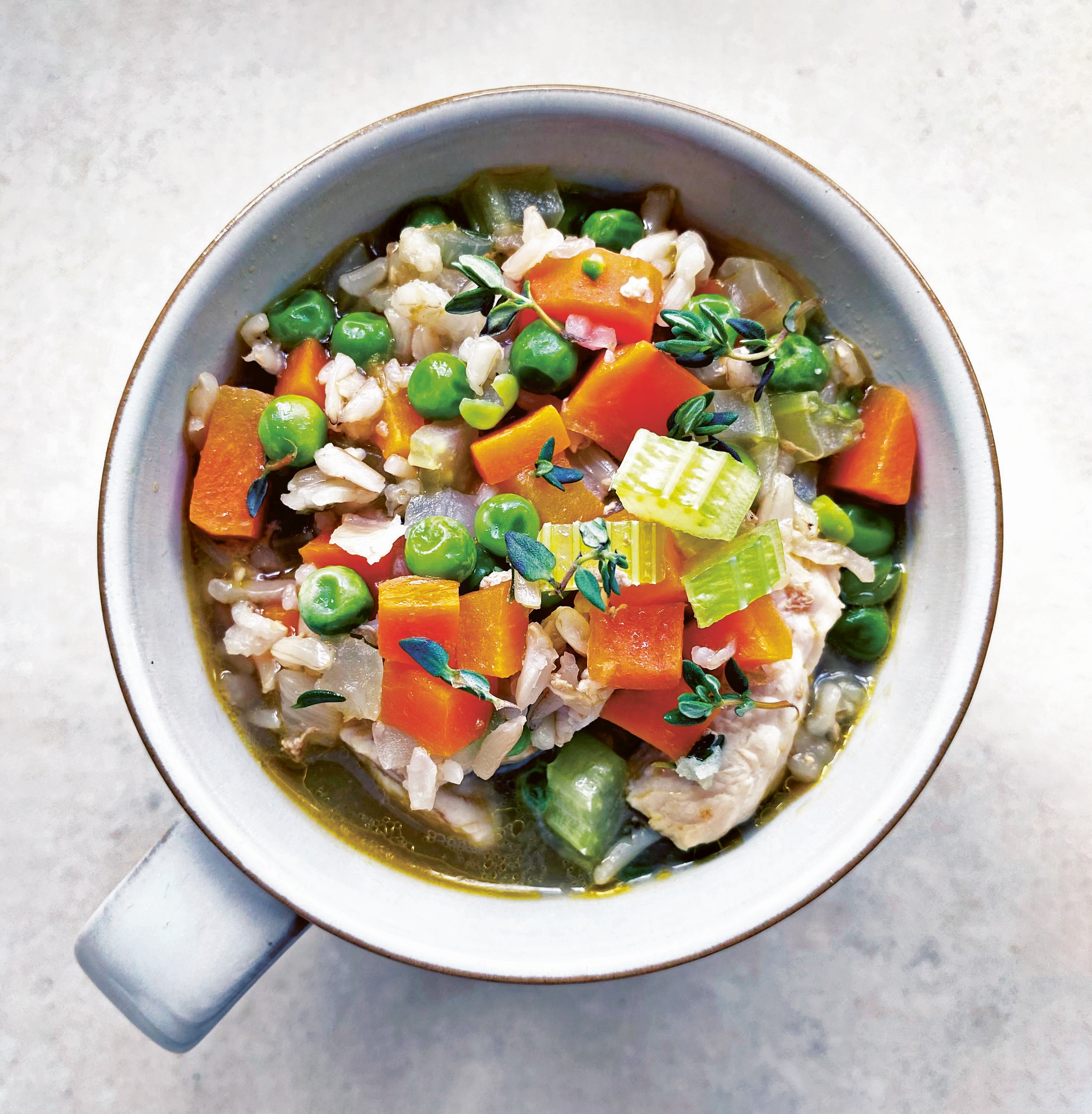Since we could watch people do anything on television, we’ve watched people cook. Without getting too flowery, I think this is because food is inherently relatable, narratable and – if you were privy to the recent furore over Jamie Oliver’s attempt at Carribbean cooking – debatable. We tell stories when we cook and the food we watch reflects the stories we want to tell ourselves.
In the babbling post-war infancy of British food we had the imperious instruction of Fanny Cradock, who mastered that insouciant, belligerent haughtiness that makes rewatching her programmes both addictive and nauseating, like watching a wasp drown. She was replaced by the much gentler Delia Smith, who has probably done more for the country’s culinary confidence than anyone else. She guided us through the self-conscious, tetchy adolescence of prawn cocktails, steak Diane and Black Forest Gâteau until chefs, rather than friendly cooks, became the object of our fancy and fantasy. The Bob Carlos Clarke images of Marco Pierre White for White Heat made cooking dangerously, mysteriously sexy. By taking part, by eating and talking about food, we too hope to acquire this allure. There are now more celebrity chefs and chef celebrities than one could possibly keep track of. No one cooks quietly anymore and hardly anyone from my cohort seems to eat privately either – the familiar, insufferable urge to jettison minutiae into the ether. From a business point of view, food videos ‘share well’ – and none share better than snappy overhead recipe videos, pioneered by the BuzzFeed channel, Tasty.
Though ostensibly instructive, these videos exist to be viral. They’re there to momentarily interrupt the inexorable upward drudge of thumb on screen. As such, they have to sink lower into the depths of food porn: deepfried- sushi-macaroni-pizza-lasagne-burgers – delicious right? Um, no.
My interest was piqued, therefore, when I stumbled across MOB Kitchen. Started by Oxford’s own Ben Lebus [main image, far right], what anchored my attention was that I actually wanted to make what I saw. Also, their formula, to feed four for under a tenner, is genuinely useful. As beautiful as anything Tasty ever made, but with affordable, edible food.
Ben reckons that his approach meant that MOB has grown more slowly but, crucially, more sustainably than its competitors. “I wanted to break away from this trend of food videos online that just seemed to revolve around food porn and big stacks of fries and cheese,” he told me from his swish studio in London. “What it ultimately meant was that the channel grew slower because we couldn’t upload a video of deep fried cheese brownies that would 100% go viral.”
Ben’s father ran Cibo! in Summertown for over ten years, so Ben “got that love for food, presentation and service” and witnessed the joys of feeding the masses. When he got to university he realised that the culinary repertoire of his fellow students didn’t stretch far past “bacon sarnies, ready pots of soup and peas, pesto pasta” and the like. He also realised there wasn’t anything out there “that made you excited to cook and experiment”.
The initial stages of MOB Kitchen’s growth involved what can only be described as hustle. Ben handed out flyers outside the Cowley Road Tesco. He became a Deliveroo rider, and in an act of savvy subterfuge, “was hiding flyers in pizza boxes”. While he’s unsure if any of this had a tangible effect, it certainly displays his conviction.
I like MOB Kitchen because it recognises that a lot of 20-somethings are useless in the kitchen, lazy and skint, but doesn’t treat them like idiots. The lack of education at school is, Ben thinks, “really problematic and weird seeing as it’s the one thing we do every single day”, and I would hasten to agree. I’m mindful of a scene in a Jamie Oliver programme I saw once where British school children couldn’t successfully identify a leek, whereas similarly tested Italian bambini lambasted the naked chef for having produce that wasn’t in season.
Ben isn’t a moraliser; his recipes don’t come attached to a gospel about how easy everything is, how healthy everything should be and how we should all look down on the unconverted. His recipes are costed at the supermarket price, unlike other budget cookery websites that will quote you a proportion – a teaspoon of cumin for 5p, which is useless as “no student has a store cupboard”. When a MOB recipe says it’ll feed four for under a tenner, it follows through.
MOB Kitchen has certainly come a long way from the days of stowing flyers in Deliveroo boxes. Their first cookbook has been published with Pavilion and is on its fourth print run – “It’s been mental; I certainly don’t think the publisher estimated it would do this well.” In a world of food porn, clickbait and food fads (can someone have a word with Gwyneth Paltrow, please?) MOB Kitchen is a promising development. It shows that eating well needn’t involve loads of money, time or insight. To eat well is to have fun with food, and that, I think, is a story we ought to be telling ourselves.
The MOB Kitchen cookbook is available online and in bookshops, including Waterstones in Oxford.
Instagram @mobkitchenuk
Facebook @mobkitchen

